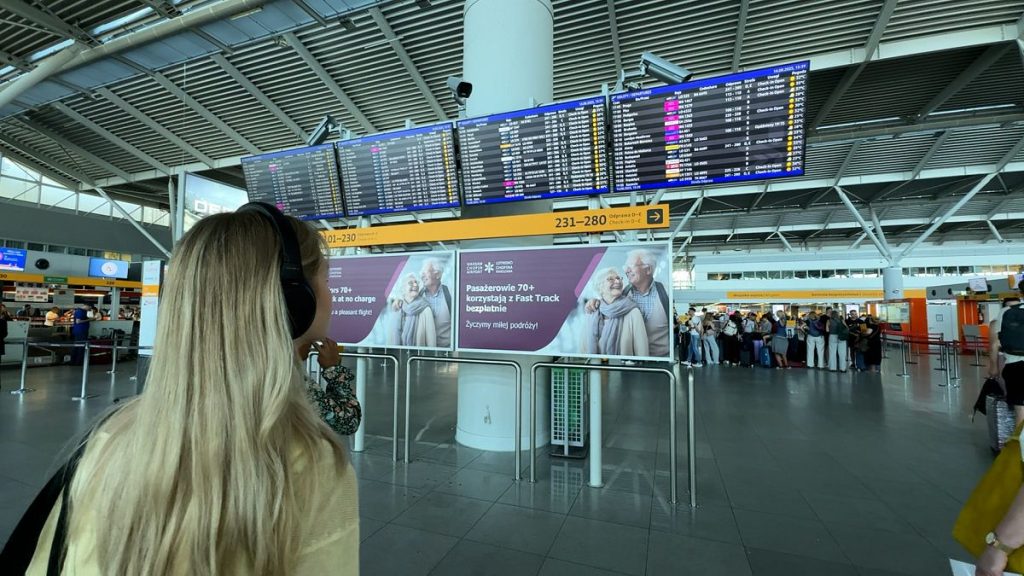Aviation Industry in 2024: Challenges and Opportunities Amid Growth
Europe’s aviation sector has faced significant hurdles in 2024, with widespread strikes by ground staff, pilots, and air traffic controllers disrupting travel plans and impacting airlines financially. However, according to Gediminas Žiemelis, founder and chairman of Avia Solutions Group, these labor disputes represent just one facet of the industry’s current challenges. Having operated 15 branches of Aviator ground handling across Scandinavia, Žiemelis notes that strikes are a regular occurrence in the sector. More pressing concerns include airspace closures over Ukraine and Israel (causing congestion and longer flight routes), technical issues with new-generation engines, and the lingering effects of COVID-19 disruptions. Perhaps most significantly, both Boeing and Airbus continue struggling with production backlogs—approximately 3,400 narrow-body and 1,200 wide-body aircraft remain unbuilt since the pandemic. This shortage has forced airlines to extend their current fleet’s lifespan by two to three years while trying to accommodate record passenger traffic levels. Despite these obstacles, Žiemelis maintains that the overall business outlook remains positive as global air traffic continues its upward trajectory.
The aviation industry has demonstrated remarkable resilience following the COVID-19 pandemic, which caused global air traffic to plummet by 66% in 2020. According to International Air Transport Association (IATA) forecasts, passenger numbers will reach 5.2 billion by 2025—a 6.7% increase from 2024—indicating substantial growth potential across all market segments. This recovery trajectory has made the industry particularly attractive to investors, as evidenced by the recent acquisition of Air Lease Corporation by a consortium led by SMBC Aviation Capital for approximately $7.4 billion. Regarding regulatory frameworks, Žiemelis considers EU regulations, including those pertaining to sustainable aviation fuel (SAF), to be positive developments that align with safety priorities and environmental goals. However, he cautions that potential EU-level regulations on minimum hand luggage sizes could inadvertently increase average ticket prices by affecting the low-cost airline business model, which relies on charging for additional services to keep base fares affordable.
The most pressing challenge facing global aviation today stems from major aircraft manufacturers’ inability to deliver sufficient new planes to meet demand. Avia Solutions Group has positioned itself strategically within this gap through its Aircraft, Crew, Maintenance, and Insurance (ACMI) services, providing airlines with flexible, short-term capacity solutions during peak seasons without requiring long-term financial commitments. Žiemelis explains that airlines typically have three options for fleet management: aircraft ownership, long-term leasing (5-7 years), or ACMI leasing (usually around six months). Most airlines generate the majority of their revenue during summer peak seasons, making year-round ownership or long-term leasing of their entire fleet financially inefficient. According to Žiemelis, airlines can increase profitability by 2-3% by utilizing ACMI for up to 10% of their total fleet during peak periods, making it an effective fleet management tool in the current supply-constrained market.
Avia Solutions Group’s growth strategy centers on global expansion to counteract seasonal demand fluctuations. When summer ends in Europe (the traditional ACMI market), peak season begins in the southern hemisphere. By establishing airlines in Indonesia, Thailand, Brazil, and Mexico, the company has created a counter-cyclical operational model that allows it to relocate its fleet to regions with the highest demand. This global approach extends beyond aircraft operations—the group recently opened a service center in the Philippines to provide remote workforce solutions to its worldwide subsidiaries while tapping into Asian talent pools. In Europe, particularly, Avia Solutions Group plans to open a SAF and synthetic jet fuel (eSAF) plant in Latvia by 2030, which will become Northern Europe’s largest such facility. This investment responds to increasing EU requirements for sustainable aviation fuel usage while supporting European energy sovereignty. Žiemelis specifically highlights Poland as a rapidly growing aviation market, with projections indicating 59.5 million passengers in 2024—a 15.6% increase from 2023 and 22% growth compared to pre-pandemic 2019 levels.
As the world’s largest ACMI provider with a fleet of 209 aircraft, Avia Solutions Group considers most industry players as potential customers or partners rather than competitors. The company maintains diverse business relationships across the aviation ecosystem: leasing aircraft from long-term lessors, providing ground handling services to airports, repairing third-party aircraft through its FL Technics subsidiary, and delivering training for crews and pilots across numerous airlines. This interconnected approach allows the group to offer comprehensive services throughout the aviation value chain. Looking forward, Žiemelis aims to expand the company’s fleet to over 700 aircraft in the coming years. With industry consultants valuing the global ACMI market at approximately $30 billion and requiring an estimated 1,500 aircraft, Avia Solutions Group sees substantial growth potential from its current position. The company’s recent order of 80 Boeing 737 MAX aircraft aligns with its sustainability goals by offering customers modern, fuel-efficient options while supporting planned ACMI business expansion.
Regarding corporate structure, Žiemelis maintains approximately 60% ownership of Avia Solutions Group, with the remainder held by various shareholders including Certares, a US private equity firm that invested €300 million in 2021 before converting this amount into a 20% equity stake last year. The company also benefits from former US Secretary of State Mike Pompeo’s involvement as a strategic advisor. In early 2024, Avia Solutions Group successfully listed $300 million in unsecured senior notes on Euronext Dublin, demonstrating investor confidence in its growth strategy. Though previously listed on the Warsaw Stock Exchange, the company chose to delist to facilitate faster growth as a private entity—a decision that Žiemelis believes has proven effective. While remaining open to future public market opportunities, he indicates that serious discussions about re-entering the stock market won’t occur for at least two years. Through this strategic combination of global expansion, fleet diversification, and focus on emerging sustainability requirements, Avia Solutions Group has positioned itself to capitalize on aviation’s continued recovery and growth despite the industry’s persistent challenges.


